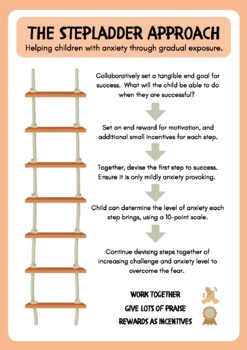In our contemporary existence, beset by an array of uncertainties and a relentless pace of change, anxiety about the future has emerged as a pervasive concern. Yet, amidst this turmoil, the Baha’i teachings offer profound insights and methodologies for managing such anxiety, encouraging a transition not only in perspective but also in the emotional and spiritual realms. By fostering a deeper understanding of the interconnectedness of life, the Baha’i Faith invites followers to embrace a transformative outlook, replete with courage, optimism, and a commitment to service.
At its core, Baha’i teachings emphasize the necessity of a paradigm shift in how individuals perceive the future. Central to this ideology is the recognition that anxiety often stems from a sense of helplessness against the inexorable tide of time and the unknown. However, the Baha’i worldview posits that the future is not merely a blank canvas waiting to be filled unpredictably but a realm where human agency plays a crucial role. This perspective cultivates resilience, urging individuals to acknowledge their capacity to effect positive change. When one perceives challenges as opportunities for growth rather than as insurmountable obstacles, the burden of anxiety is significantly alleviated.
Furthermore, cultivating a robust sense of community is pivotal in the Baha’i approach to navigating anxiety about the future. The teachings underscore the interconnectedness of humanity, promoting a vision of unity that transcends individual concerns. In communal settings, individuals are empowered to share their fears, gain new insights, and receive emotional support. Such communal ties foster a nurturing environment where shared experiences illuminate paths toward resilience. Regular gatherings, whether in the form of devotional meetings, study circles, or service projects, serve as foundations for building this sense of unity. Within these spheres, individuals can confront their anxieties collectively, thus transforming personal fears into shared aspirations for a brighter future.
Integral to addressing anxiety is the practice of reflection—a mechanism for deeper introspection that the Baha’i teachings endorse. Engaging in prayer and meditation can ground individuals, providing clarity amidst chaos. Moments of stillness allow one to confront one’s thoughts and emotions, unraveling the layers of anxiety to reveal underlying fears. This process encourages a peaceful coexistence with uncertainty, as individuals learn to accept aspects of life beyond their control. The act of surrendering to a higher power, coupled with the acknowledgment that not all outcomes can be predicted or governed, alleviates the burden of anxiety.
Moreover, cultivating a mindset of gratitude is a significant tenet of the Baha’i teachings. Recognizing and appreciating the present moment helps counterbalance fears of future uncertainties. Gratitude shifts focus from what is lacking to what is abundant. It invites individuals to celebrate small victories and learnings derived from life’s experiences. Such a mindset acts as an antidote to anxiety, enabling individuals to face the future with a sense of hope rather than trepidation. Through this lens, the future transforms from a daunting unknown into a realm filled with potential, and life becomes an adventure to be embraced.
The concept of continuous learning is another pivotal aspect of the Baha’i approach. Life is depicted as a continuous journey of acquisition, where knowledge serves as a stabilizing force amidst uncertainty. By engaging in lifelong educational pursuits, individuals not only enhance their competencies but also foster a sense of preparedness for future challenges. The acquisition of knowledge and skills empowers people, transforming anxiety into proactive engagement with the unknown. The Baha’i teachings encourage a holistic pursuit of education that encompasses spiritual, moral, and practical knowledge, thereby ensuring that learners remain adaptable amidst the evolving contours of the world.
Additionally, the Baha’i perspective on service emerges as a particularly compelling antidote to anxiety. When individuals direct their energies toward meaningful contributions to the community, they transcend self-centered concerns and cultivate a sense of purpose. This service fuses personal development with communal well-being, reinforcing the belief that the act of giving and helping others can diminish one’s anxiety. Contributing to the betterment of society fosters a sense of belonging and responsibility, anchoring the individual in a larger narrative that transcends immediate personal fears.
Indeed, the Baha’i Faith invites believers to engage in a process of unearthing their innermost strengths and potential. As individuals strengthen their spiritual capacities, they become resilient against life’s vicissitudes. Embracing the Baha’i principles of equity, justice, and unity, practitioners find avenues to embolden their spirits, thereby mitigating anxiety not merely on a personal level but as part of a larger collective journey.
Finally, it is essential to acknowledge that the journey to manage anxiety about the future is not embarked upon in isolation. It necessitates a steadfast commitment to communal and spiritual engagement. By weaving together the threads of collective support, gratitude, reflection, service, and education, the Baha’i teachings promise to enrich the human experience, transforming anxiety into a path of growth and aspiration. In this manner, anxiety can be reframed as a catalyst for transformation rather than a paralyzing burden, inviting individuals to navigate the complexities of existence with newfound hope and assurance.
In conclusion, the Baha’i approach to managing anxiety about the future is profoundly enriching, revealing strategies that prompt a fundamental shift in perspective. Ultimately, by embracing community, introspection, gratitude, and service, individuals can forge ahead into an uncertain future with courage and a renewed sense of purpose.
